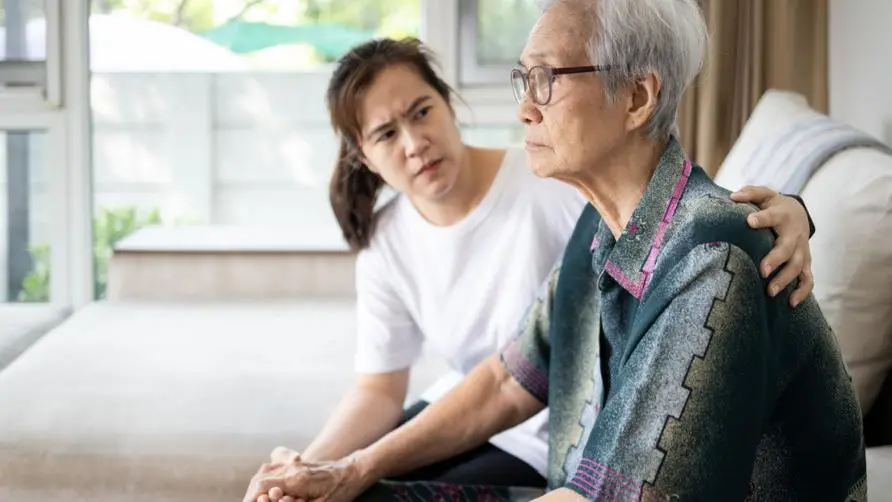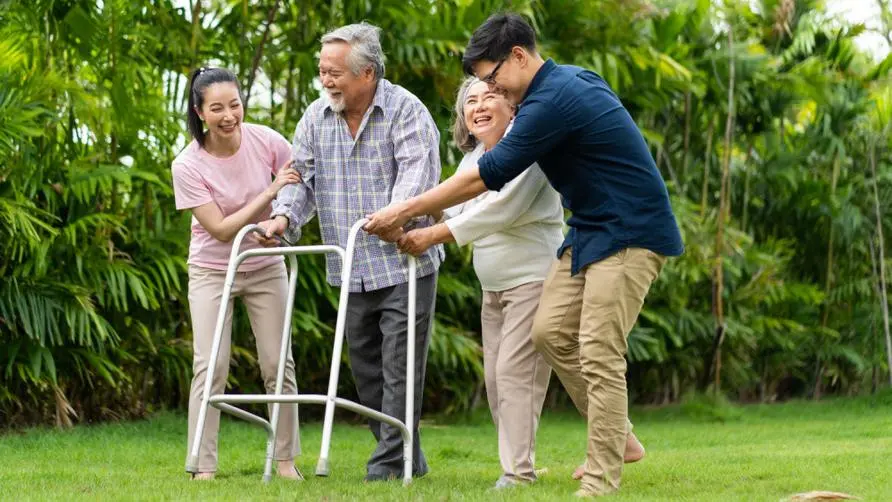The number of "disabled" people in Taiwan exceeds one million! The biggest main reason is actually related to "this disease": people aged 18-64 account for the majority

The number of “disabled” people in Taiwan has exceeded one million! The biggest main reason is actually related to “this disease”?
According to statistics from the Taiwan Ministry of Health and Welfare, approximately 4.45 million people in Taiwan seek medical treatment for neurological diseases every year, and Taiwan’s disabled population has exceeded one million. As Taiwan is about to enter a super-aging society, the number of people with neurodegenerative diseases has increased. and patient care will be important topics. Lin Yongyang, chairman of the Taiwan Neurological Society, pointed out that in addition to the functional deterioration naturally caused by aging, “cranial nerve diseases” are also closely related to disability issues. For people whose physical or mental functions are impaired due to stroke, dementia and other cranial nerve diseases, the risk of disability cannot be underestimated. The inability to continue working, long-term illness and care problems caused by disability are also current issues. One of the national social crises.
Chairman Lin Yongyang took stroke as an example. Due to changes in modern people’s lifestyles, cases of the disease among young adults have been heard from time to time, which once again shows that the public should pay more attention to maintaining brain health. Coinciding with the “World Brain Health Day” on July 22, the Taiwan Neurological Society responds to the theme of “Leave no one behind” and calls on the public to take the initiative to pay attention to brain health and care for people with brain disorders. The rights and interests of patients who are disabled due to neurological diseases can help them avoid the dilemma of disability.
Do people aged 18-64 account for more than half of the population suffering from stroke? Cranial nerve diseases are no longer exclusive to the elderly
Statistics released by the Taiwan Ministry of Health and Welfare in 2021 show that the disabled population in Taiwan has reached 1.2 million, and analysis shows that up to 62.8% of them are caused by acquired diseases. Chairman Lin Yongyang pointed out that among these acquired diseases, “cranial nerve diseases” are the most common, which are closely related to mental and physical motor disabilities. In addition to dementia and Parkinson’s disease, which are common in the elderly, stroke, brain trauma, epilepsy, and immune neurological diseases may all cause disability, affecting the body, language, mind, senses, and emotions. Loss of management and other abilities.
In recent years, “stroke” among cranial nerve diseases has also shown a trend among younger people, and the disability crisis derived from it is no longer exclusive to the elderly. According to statistics from the Taiwan Ministry of Health and Welfare, there are currently nearly 1.2 million people with disability certificates. Looking at the age distribution, the 18-64 year old group accounts for as much as 50.5%, of which 50-59 years old and 30-44 year old are the most common. The highest proportion.
In other words, about half of the disabled people are of working age and have to face long-term care problems derived from disability, not to mention the average monthly long-term care expenditure of 30,000 to 50,000 yuan, which will bring to family life and society. A huge burden. Therefore, Chairman Lin Yongyang pointed out that the top priority is to establish public health and education concepts on disease prevention and rehabilitation, and to actively enhance the public’s awareness of actions to maintain brain health.
About 60-80% of stroke patients are at risk of becoming disabled! Early acceptance of “rehabilitation treatment” is the key to recovery
Dr. Zhong Zhiping, Director of Stroke Intensive Care at Taipei Veterans General Hospital, explained that stroke is the disease that causes the largest number of disability and death among neurological diseases, and is currently ranked fifth among the top ten causes of death in Taiwan. One month after the initial stroke, 6-80% of patients may be unable to take care of themselves and need to rely on others to take care of them. Even six months later, 50% of patients are still in crisis of disability.
However, disability does not necessarily have to be endured passively or be a lifelong condition. Rehabilitation options such as physical therapy, occupational therapy and speech therapy can still be relied upon to achieve prevention and recovery effects. Xu Tingjia, Department of Neurology, Department of Neurology, Taipei Veterans General Hospital, and Occupational Therapist Li Yunshan shared that patients often think that rehabilitation is only training the strength of the limbs. In fact, it is also stimulating the brain’s neural circuits and practicing the relationship between the brain and the limbs. degree of connectivity.
Although the necrotic brain nerve cells after stroke are irreversible, the surrounding nerve cells can, after stimulation or appropriate training, generate new synapses and connect with other nerves, thereby replacing the functions of the original necrotic brain cells and forming new operating functions. Therefore, through proactive exercise and comprehensive occupational therapy assessment, as well as stimulation and practice during the golden rehabilitation period within 6 months of stroke, more than 90% of patients can achieve optimal neurological function recovery and achieve a mild recovery. For those with severe disability, it is expected to be shortened to about 2 months.
In response to 722 World Brain Health Day, the Taiwan Neurological Society encourages patients to stay away from disability
Coinciding with World Brain Health Day on July 22, the World Neurological Alliance has set the theme this year as “Leave no one behind” and cooperated with the World Neurological Rehabilitation Alliance to propose Five major initiatives, paying special attention to the well-being of people disabled by cranial neurological diseases, to ensure that everyone enjoys brain health:
Awareness: Increasing global attention to brain health can reduce neurological diseases and possible disabilities.
Prevention: Disabilities caused by cranial nerve diseases can be prevented, treated and rehabilitated.
Advocacy: Brain health is a human right for people around the world.
Education: Education can bridge the resource gap between patients who are disabled due to cranial nerve diseases and the general population.
Access: Medical care, rehabilitation and assistance provided by society to the disabled are indispensable.
Secretary-General of the Taiwan Neurological Society You Xiangyu said that the brain is one of the most sophisticated organs in the human body. Because of the complex neural structures throughout it, most people do not understand the extent to which brain damage can affect their lives. Therefore, the Taiwan Neurological Society calls on the public to actively care for the rights of patients who are disabled due to cranial nerve diseases, and to encourage patients to return to functional life through comprehensive rehabilitation treatment. It also needs to join hands with all walks of life to improve the public’s awareness of brain health. Understand and promote brain health for all.
Further reading: Dementia and abnormal aging phenomenon! Three keys to preventing medical exposure: Eating this way slows down cognitive decline by 60%





